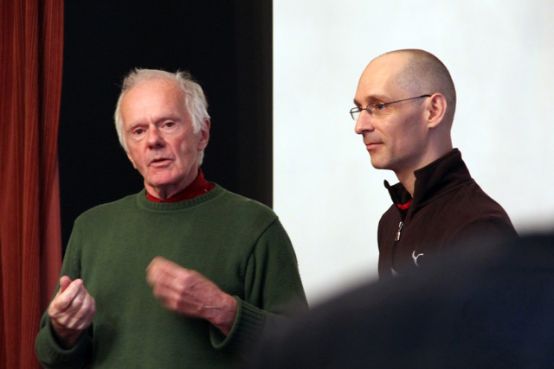Impulses for Swiss jazz research
The first comprehensive jazz conference in Switzerland took place in Lucerne from November 6 to 8, 2014. The symposium was organized by the Bern University of the Arts (HKB), the Lucerne School of Music (HSLU) and the Haute Ecole de Musique Lausanne (HEMU).

The background to the conference was the HKB research project Growing Up - The Emancipation of Jazz in Switzerland 1965-1980which runs until the beginning of 2016. Researchers from all over Europe exchanged ideas and contributed to regional jazz-specific research questions. In a thoroughly productive and positive atmosphere, the long-established jazz researchers reported on their experiences and in turn served as role models for the next generation of researchers, doctoral students from various institutes, who presented their dissertations and projects. Presentations were given in German, English and French, constructive discussions were held, new suggestions were made, research questions were raised and new results were achieved.
Institutes for jazz research from the University of Music and Performing Arts Graz, the University of Lucerne, the Bern University of Music, the Amsterdam Conservatoire, the University of Leeds and Salford as well as the Université de Paris, University of Stavanger, Siena, Dortmund and Budapest were represented at the conference. In total, there were seven panels on different topics, with the European research project Rhythm Changes had submitted two complete panels. This was initiated by the University of Salford and cooperates with the universities of Graz, Birmingham City, Stavanger, Copenhagen, Amsterdam and Lancaster. The project's research focuses on national concepts of jazz and their identities through international comparison.
The conference Growing up - Jazz in Europe 1960-1980 began with a lecture by the German musicologist, author and musician Ekkehard Jost, who was invited as keynote speaker and asked in his presentation whether there is a European identity for jazz at all. The second keynote speaker was Swiss musician Bruno Spoerri, author of the book Jazz in Switzerlandwhich has already been the subject of a SRF documentary series. He reported on his experiences with jazz in Switzerland and was delighted that this conference was being held, which would provide a new impetus for jazz research in Switzerland.
The first panel dealt with new styles and musical aesthetics in jazz from 1960 to 1980, followed by one on the training opportunities on a professional basis at the time. Other panels dealt with national identities and Swiss perspectives, jazz during the Cold War and jazz from the perspective of gender research. The final panel Changing Identities on the last day of the conference.
The concerts during the conference are particularly worth mentioning. There were two lecture concerts, the first with Pierre Favre on drums and the second with Thomas Mejer, who spoke about the music of Mani Planzer and was accompanied musically by three students. The evenings were spent in the Jazzkantine Lucerne, where concerts with students from the three music academies of Lucerne, Bern and Lausanne took place and on the last evening the Swiss jazz pianist Irène Schweizer performed with the Swiss drummer Pierre Favre.
In summary, it can be said that a very productive exchange between jazz scholars, musicologists and musicians from all over Europe took place over the three days, which not only consisted of theory, but was also put into practice through the concerts. The developments of jazz in its two most eventful decades were illuminated and the conference - at last since Bruno Spoerri's book - got the ball rolling in Swiss jazz research.







